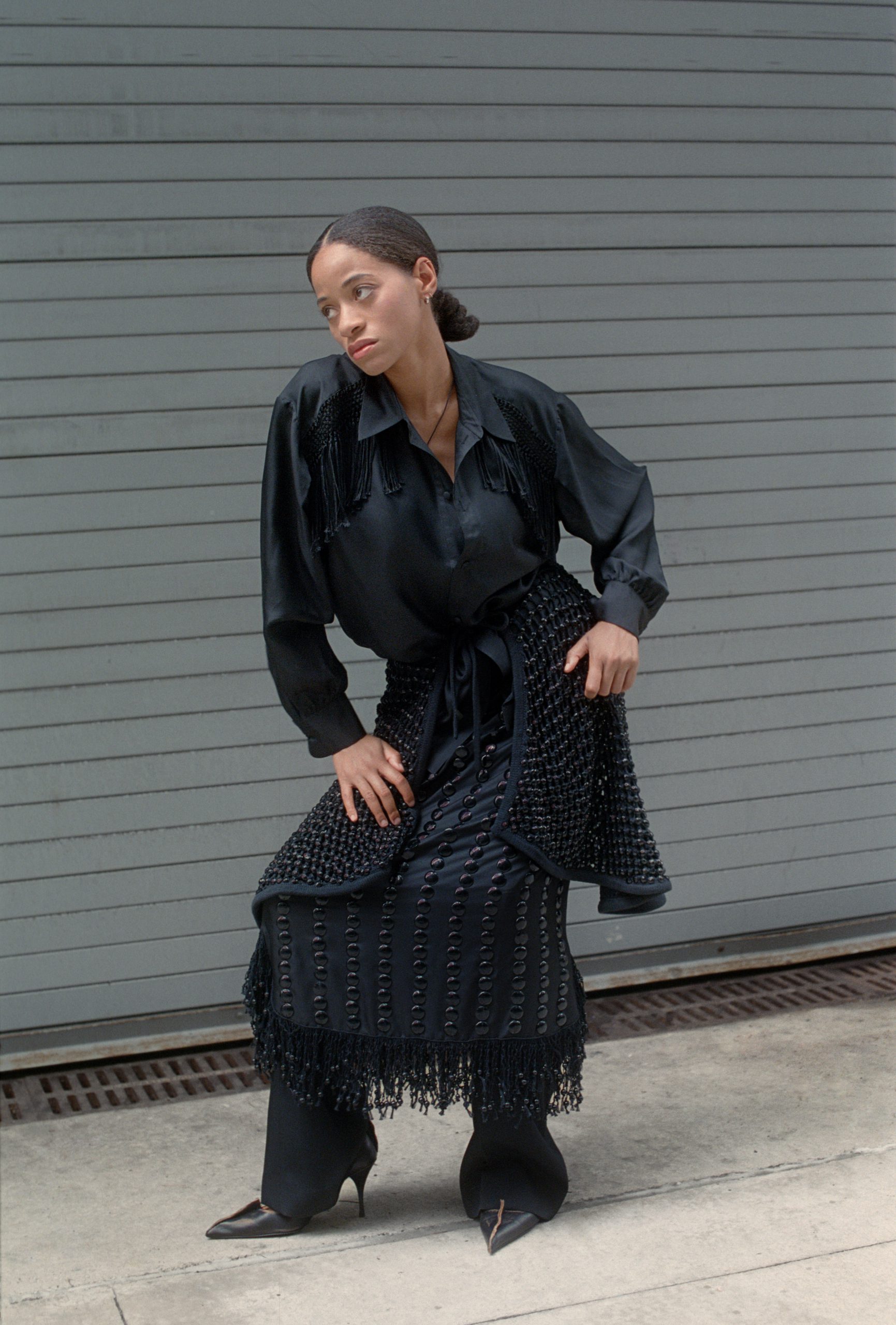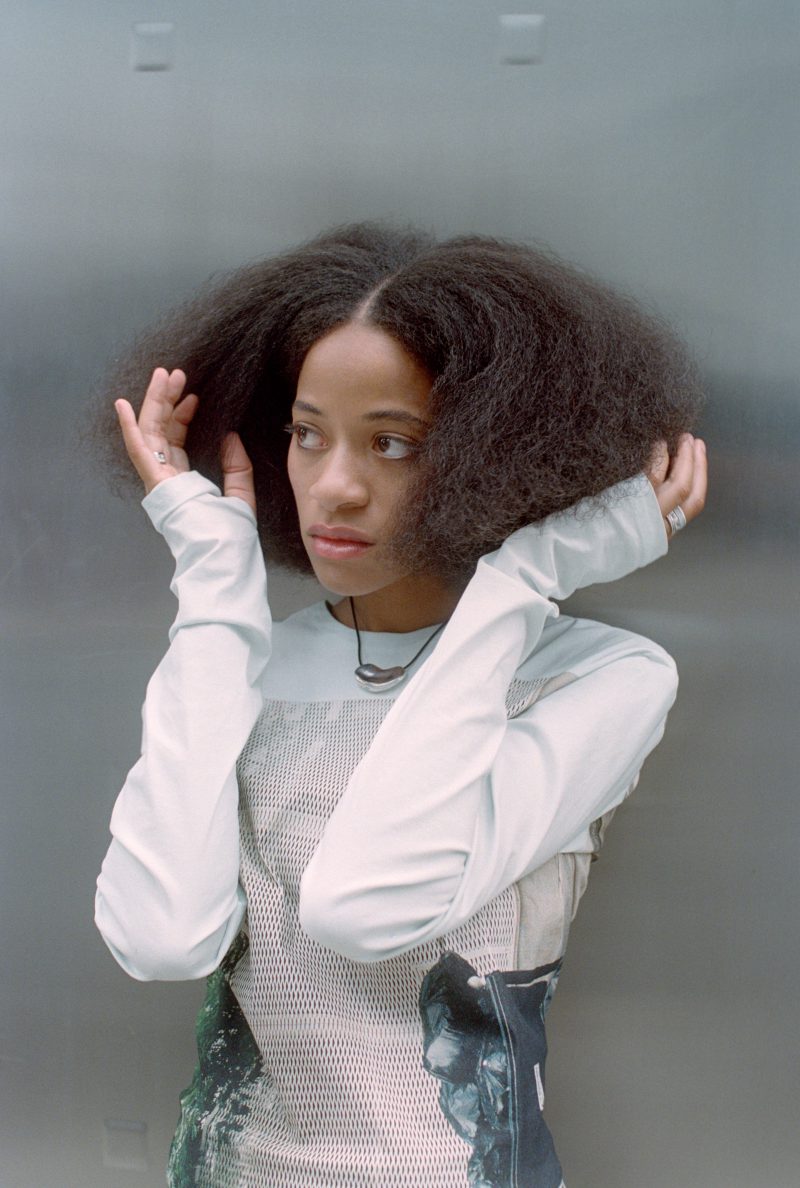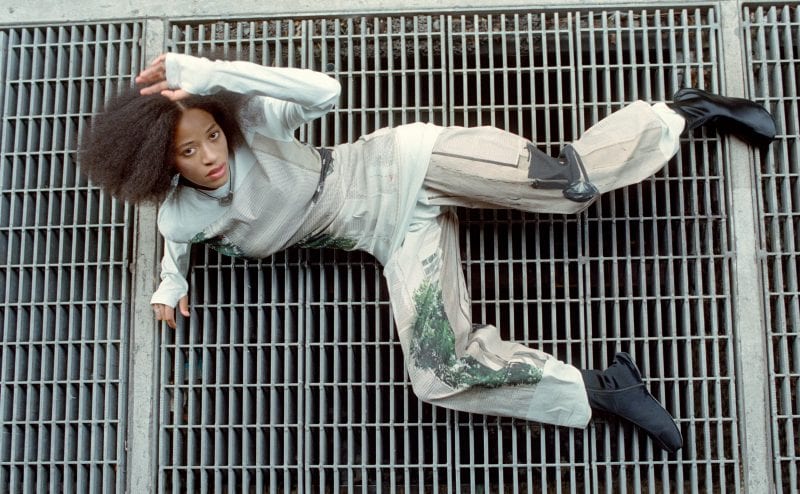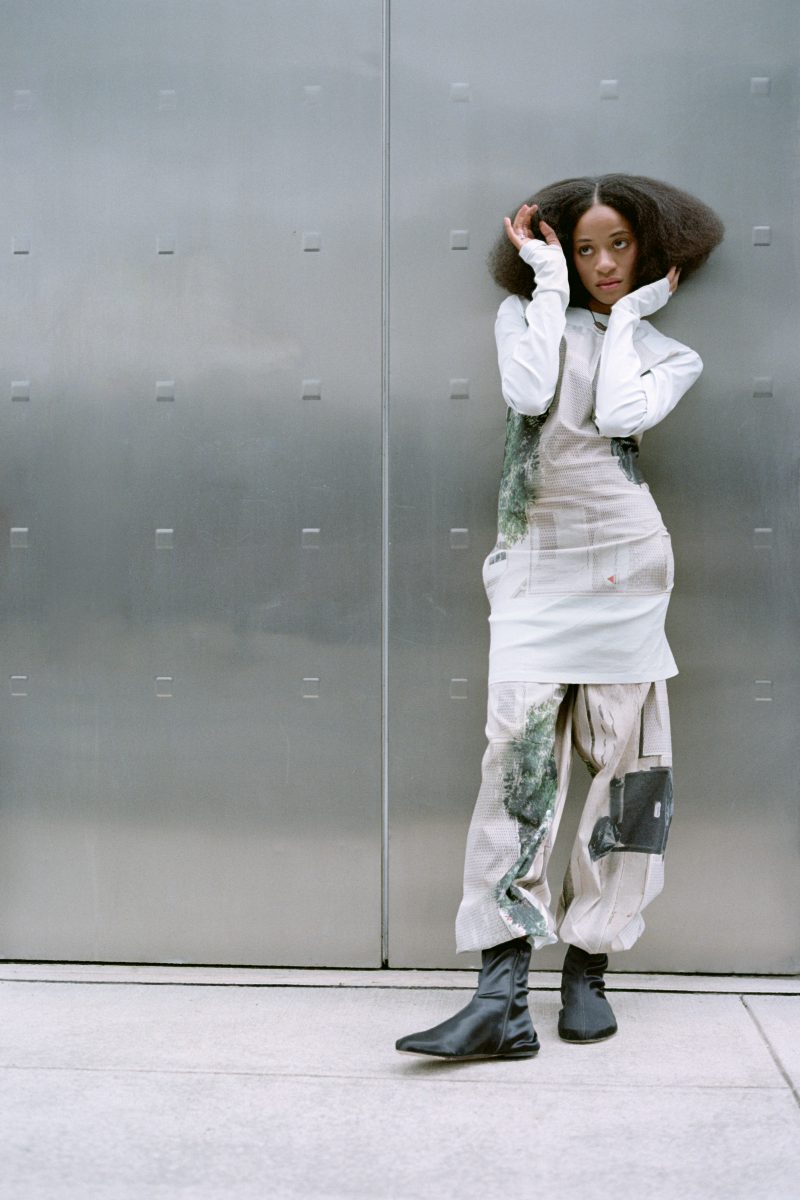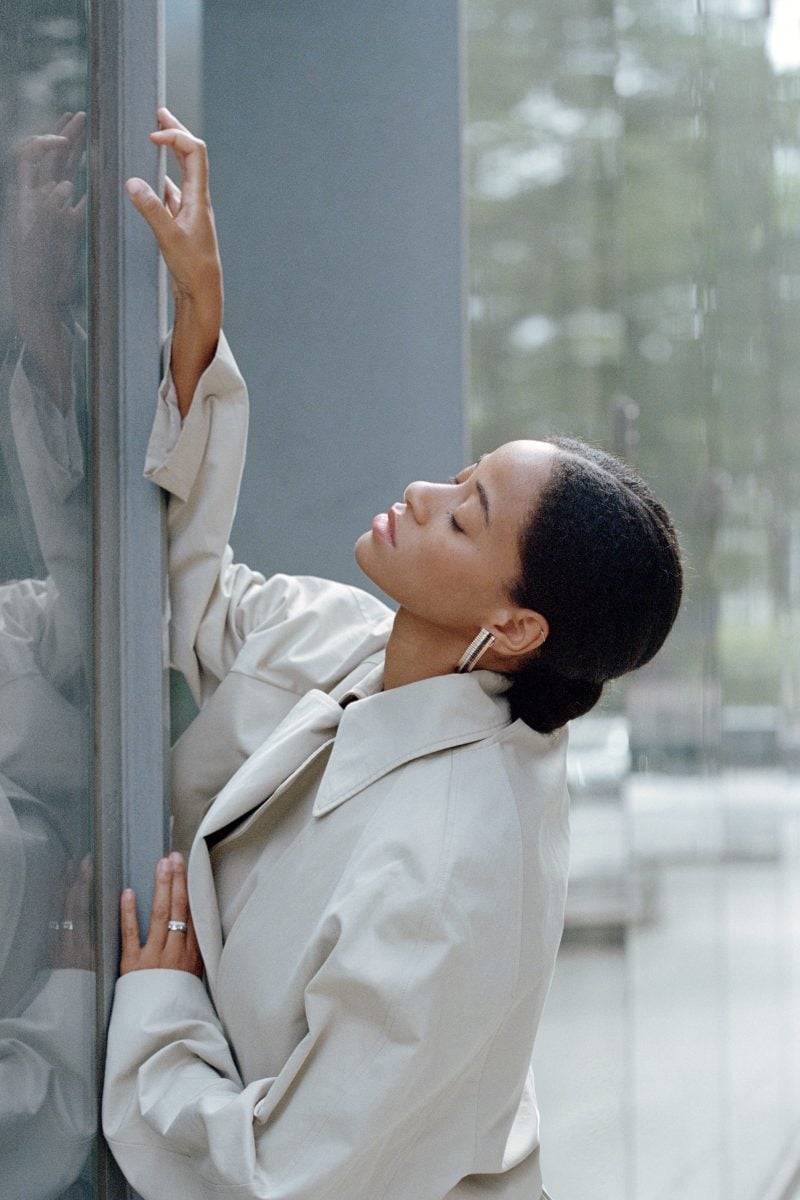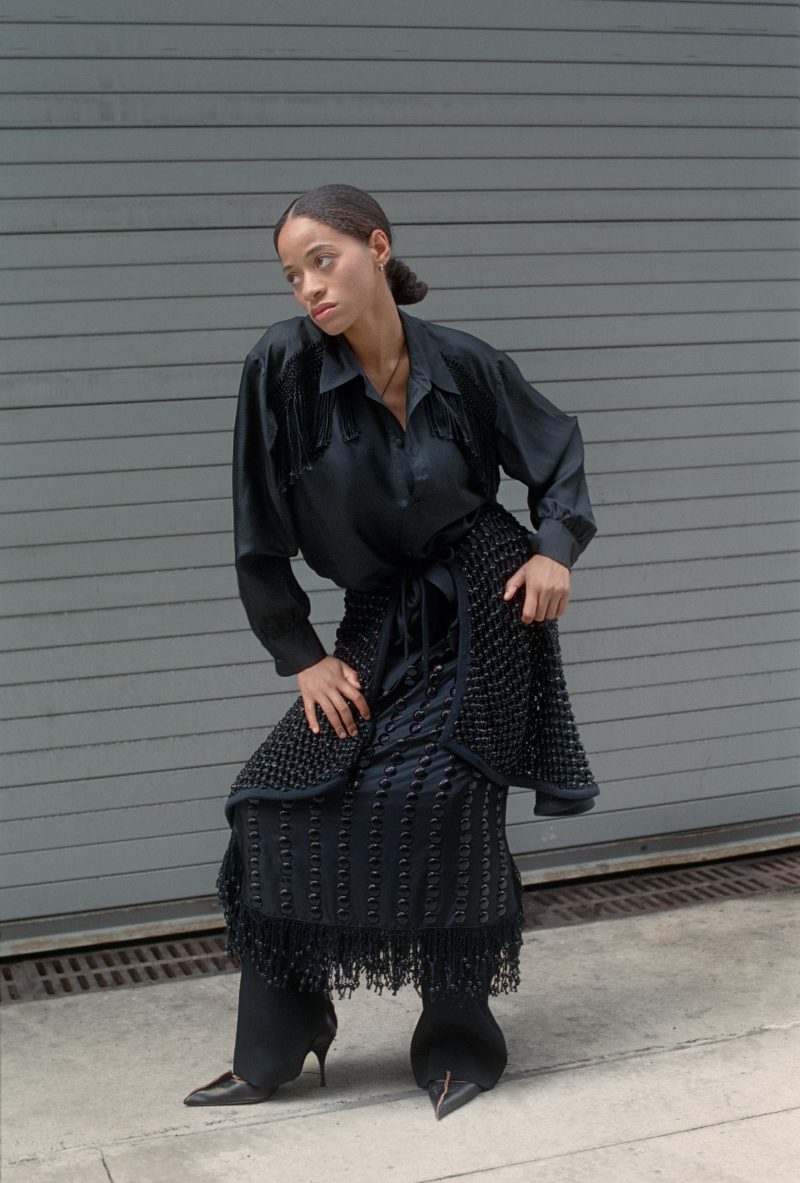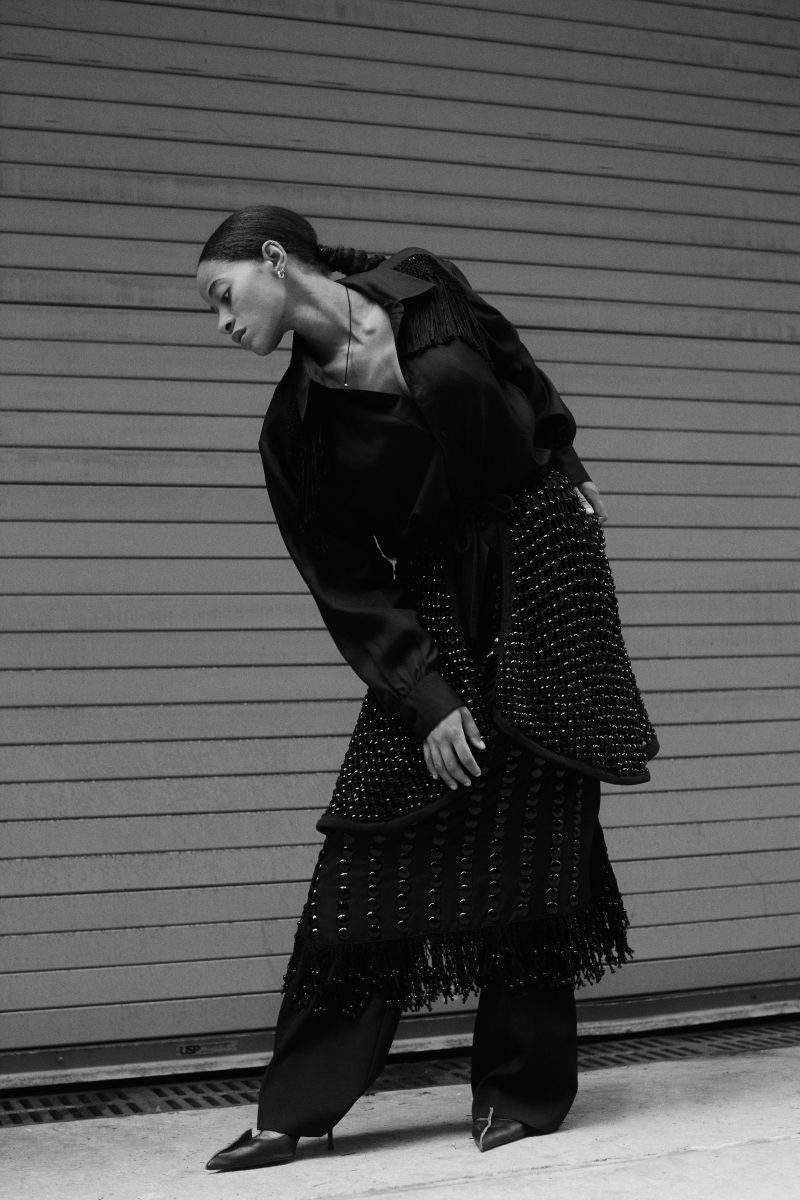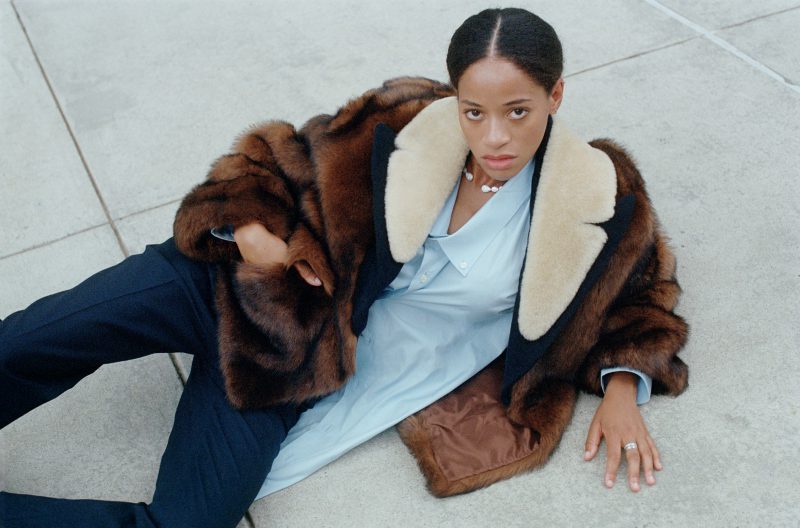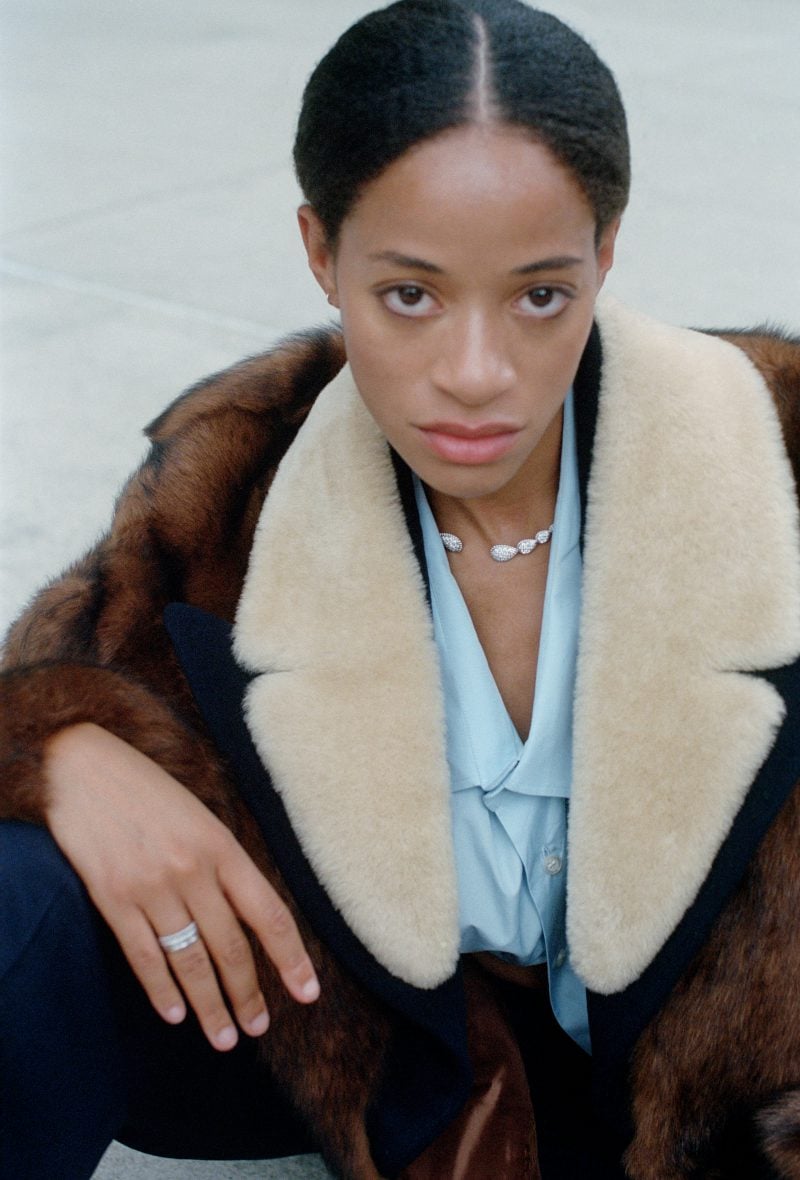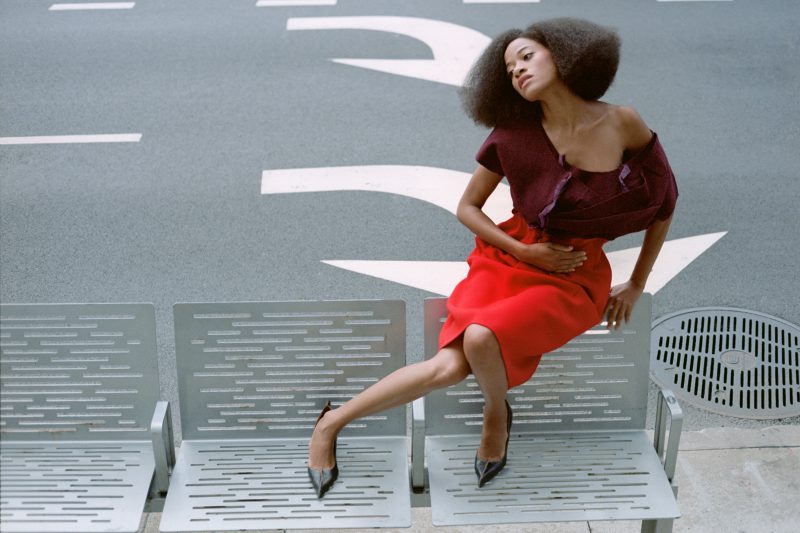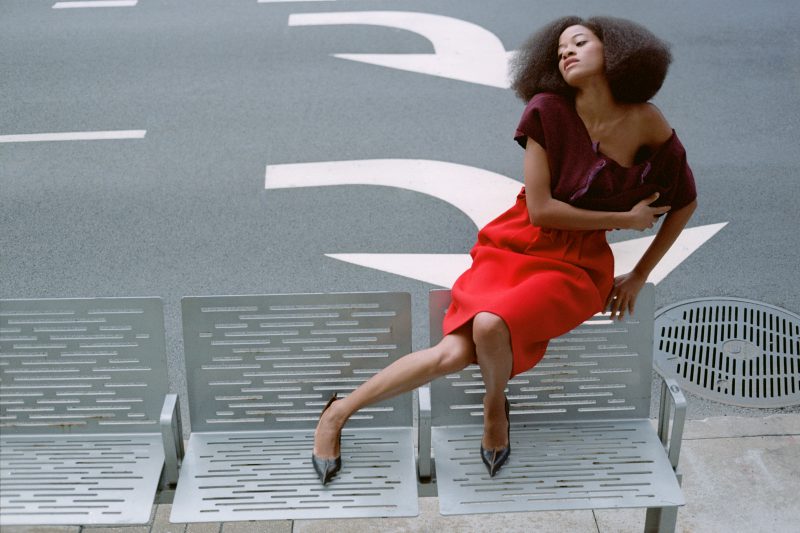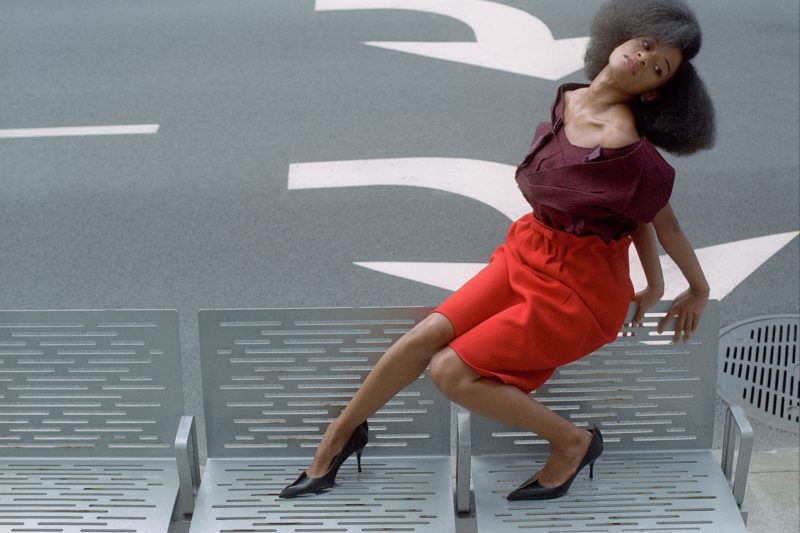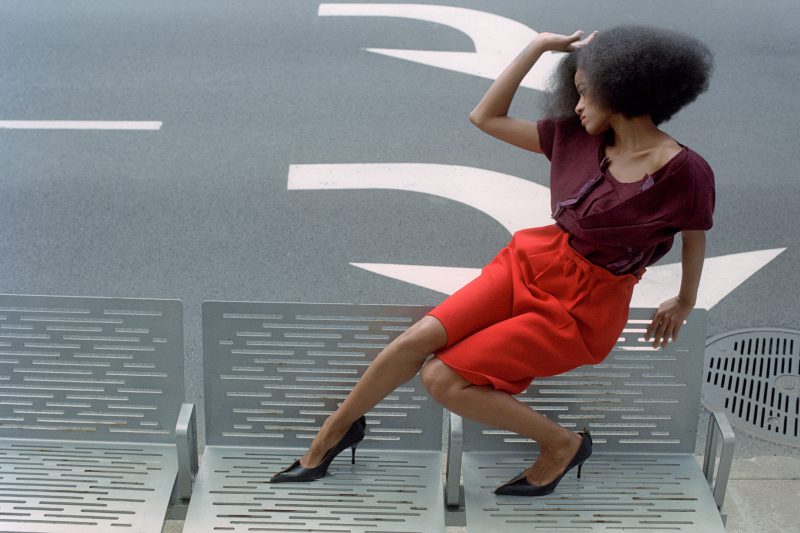In an age that demands performance, coherence, and functionality, Kilo Kish dismantles every expectation with disarming elegance. A multidimensional artist, her practice moves seamlessly between sound, image, and language—guided by the surgical precision of an emotional intelligence in constant tension. Her latest project, Negotiations, is a programmed introspection, a reboot of the self built on the short-circuit between human fragility and synthetic languages.
In Kish’s world, vulnerability is not a flaw to be masked, but a site of inquiry. She navigates through mental loops, recurring traumas, and emotional glitches. Voice, body, and narrative become tools to explore a hybrid zone—somewhere between diary and simulation. Nothing here is designed to comfort. This is a confrontation: with authenticity, with image economies, with identity as an algorithm to optimize.
In this conversation, Kish speaks of transformation, failure, and the radical urge to rewrite, dissociate, deprogram. Her vision? Piercingly clear, sometimes unsettling, always necessary. She interrogates the myth of productivity as virtue, uncovers the emotional entanglement with work, and imagines a self no longer consumed by the need to achieve or produce.
Negotiations isn’t just an album—it’s a perceptual experiment. A mental architecture to inhabit, where every audio and narrative element functions like a threshold. Characters, inner voices, fragments of self collide in a space that’s both personal and plural. Kish doesn’t just create worlds: she disassembles them, observes the collapse, and reassembles meaning through sound, silence, and gesture.
Her aesthetic is refined but charged, never decorative, always driven by conceptual urgency. There’s a constant oscillation between the manifesto and the whisper, between social critique and existential rawness. Kish doesn’t tell a story—she dissects the notion of storytelling itself, staging the self as a system in flux, in constant negotiation.
There is, throughout, a kind of mystical undercurrent—a search for spiritual clarity that coexists with the sterility of digital environments. A dialogue between artifice and essence, between the desire to feel whole and the impossibility of doing so under late-capitalist constraints. And in that liminal space, Kilo Kish moves with scalpel-like grace—composing a language for those who are still, against all odds, trying to inhabit themselves without explanation.
Ritamorena Zotti: In Negotiations, you explore the body and mind as interconnected systems—subject to loops, errors, and adaptation. What kind of research—emotional, theoretical, or technical—informed this almost cybernetic vision of the self?
Kilo Kish: I am always looking for connections between unrelated things and how they can serve to mimic or represent another, part of my worldview is that everything is interconnected in that way. Generally, it comes from my own history or personal musings and my own search for meaning in everything. At my age, I’ve been able to see my thought patterns change, slightly, with specific issues or disconcerts returning in different ways through the years. Traumas or bruises that go away and come back. The body heals an injury, but we’re prone to re-injuring that same area. In making Negotiations, we were playing in this electronic space, experimenting with old synths and the modular rig which creates lots of loops within itself, with small changes and deviations you can program in. So when thinking about how these ideas could wash over each other, it created this cyberneticness, in that we’re using electronic means to speak about human fragility and frailty.
RZ: The album speaks of transformation through multiple perspectives. Did you conceive these “shifts” as characters, inner voices, or more as narrative devices?
KK: A bit of all three. I like to build a world which is just very fun and rewarding for me—I like making a home for ideas, with its soundtrack, its characters, and its spaces. The narrative usually becomes clearer through the collaboration with my producer or other creatives on the film side of the project. I just begin knowing the kinds of ideas or connections I’d like to explore, and go from there. I have a strong visual sense before I start on the music side. But as far as my vocals go, and with songwriting, there’s always been this inner voice or inner dialogue component to my music which feels really native and important for me to express.
RZ: You’ve mentioned that Negotiations also reflects on work and love: how do you think these two forces shape identity, and how do they manifest in your everyday artistic practice?
KK: I’ve always been a “work first” kind of person. I still struggle greatly with creating balance with that. Rather than romantic love, I think this record is about untangling “love for work”, and how bringing your entire identity into what you do, make, and achieve can backfire. I don’t go too deep into it literally in the song, but for me, songs like enough allude in part to this need for validation, a pat on the back or the head, attention, praise. It’s such a huge part of our culture, and especially in the culture of making art and music I think it’s something that many of us crave. But in untangling all of this, my worth being tied to how well I am doing at “my job”, something so subjective as a career in sound and aesthetics, it made me want to rewrite the scripts that bind me to that narrative and actually free myself. Who am I outside of what I do and make? I don’t even know that person, they get so little of my time. So now I am exploring it. I want what’s beyond being an artist now.
RZ: In a time when productivity is considered an absolute value, the idea of “reprogramming” feels almost subversive. What does it mean to you to unlearn or deactivate certain internal mechanisms?
KK: It means everything. It’s essential—otherwise whose life are we living, and what for? I want all of my wants and desires to be my own and not planted in me for the sake of control, money agendas, ego, or distraction. I want purity and peace, and to live a nice life. to connect with people and the land while I am here. All the rest can fade. It’s not easy though, because it’s so ingrained in us. I am like a battery—I love productivity, I can hardly sit still, but I want that energy put towards the right things.
RZ: Your work is always a meeting point between sound, image, and performance. When starting a new project, where do you begin: with a visual, an emotion, or an abstract idea?
KK: Maybe emotion. Then abstract idea, almost simultaneously. Then the visual, the look of the world, gathering references, formatting the ideas and themes, and then the actual “work”—music, films, and installations—comes after. My favorite part is the part that precedes the music. I feel the closest spiritually to myself and to God, when I’m trying to find out what I’m supposed to be making. A lot of listening, a lot of processing and journalling.
RZ: Your aesthetic is as refined as it is unsettling—often charged with a tension between beauty and unease. What role do fashion, design, or the body as a surface play in this balance?
KK: I love to use the body as a placeholder for what I can’t say or articulate, and using my own body specifically is even more rewarding. Playing out an internal dynamic externally really helps me to sit with my point of view about a subject, and experience it in real time. Fashion helps me to mold the character—I enjoy looking through old editorials and finding references. For Negotiations, and the images around it, I wore a lot of Jil Sander, 90’s Helmut Lang, and Prada—a lot pulled from my own closet. For design and spaces, referenced a lot of old Braun electronics, Swiss and German graphic design. Coming out of american gurl (2022), which was so colorful and over the top, I’ve been itching to do something more restrained and paired back. I feel much closer to the world of this project. It’s closer to my own personal taste and aesthetics.
RZ: There’s constant introspection in your lyrics, but also a critical gaze toward social structures. Do you see yourself more as an observer or a narrator of your own contradictions?
KK: A bit of both, since I’m aware of both. I think that’s what’s beautiful about living in this age—there is so much awareness and so many angles and points of view we are constantly fed everyday. You know that some of these structures are harmful, but you still have to find a way to exist within them, or live around them, and it creates this delirium or dissociation with which we walk through life. All of these are negotiations, and it’s what the project is about at its core. These conflicts are inescapable, but they’re very interesting to me.
RZ: If we think of the self as a system in constant rewriting, is there a part of you that you still feel the urge to transform—or one you choose to preserve, despite everything, as part of your artistic evolution?
KK: I see the work we make and the marks we leave as “backups”—places we can revisit again. There’s so much data and artifacts of who we are being made everyday. More than any generations before, our lives have been so documented, it makes me feel free to change. I can always go back and remember who I was before. I keep journals, I keep keepsakes. Growth and evolution are scary, but I think it’s the only option for me.
